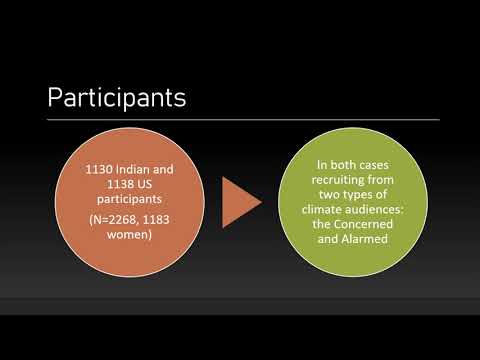 Speaker: Wojciech Malecki @Wojciech_Malecki
Speaker: Wojciech Malecki @Wojciech_Malecki
 Affiliation: University of Wroclaw, Poland
Affiliation: University of Wroclaw, Poland
Title: The impact of Dystopian and Utopian Climate Fiction on Emotions and Attitudes Toward Climate Action: Evidence from India and US
Abstract (long version below): Empirical ecocriticism is an emerging field that combines insights from the environmental humanities with methods from environmental communication and the empirical study of literature in order to study the impact of environmental narratives in literature, film, television, video games, and other media on attitudes, emotions, perceptions, and behavior (Małecki, 2019; Schneider-Mayerson, Weik von Mossner, et al., 2020). While still relatively new, the field has already generated significant interest in academia and beyond, with special journal issues and edited collections devoted to it (Schneider-Mayerson et al., 2023), as well as media coverage by the likes of Newsweek or Psychology Today. This interest is mainly due to the exciting output generated by empirical ecocriticism on the potential of stories to move the public on today’s most pressing environmental issues such as animal welfare, species extinction, and climate change (Brereton & Gómez, 2020; Iossifidis & Garforth, 2022; Małecki et al., 2016, 2019; Malecki et al., 2021; Myren-Svelstad, 2023; Sabherwal & Shreedhar, 2022; Schneider-Mayerson, 2018; Schneider-Mayerson, Gustafson, et al., 2020). The symposium focuses on the latter topic, providing new experimental data from studies conducted with Indian, German, and US participants, on the impact of climate narratives, both fictional and factual, on personal norms, emotions, and behavioral intentions.

 Long abstract
Long abstract
There is a growing consensus that climate change cannot be addressed without influencing the attitudes, beliefs, and behavior of the public, and that ordinary means of communication are insufficient to achieve that goal (Boykoff, 2019). Many scholars, journalists, and activists, claim that climate fiction (cli-fi) might be a solution here (Armitstead, 2021; Malpas, 2021). However, thus far empirical evidence on the impact of climate fiction is limited. First, it fails to discern between the different kinds of climate fiction that have emerged in recent years, its two most important subgenres, utopian and dystopian cli-fi in particular (Milner & Burgmann, 2020). It also tends to focus on Western populations and fails to take into account the fact that in each national population one can distinguish between different climate audiences, which respond differently to different kinds of communications (Leiserowitz et al., 2021; Schneider-Mayerson et al., 2020; Thaker et al., 2020). The present study seeks to address these limitations, by experimentally comparing the effects of utopian cli-fi, dystopian cli-fi, and a combination on both, on emotions and attitudes toward climate action among Indian and US readers representing two of the currently largest climate audiences, the alarmed and concerned. (Marlon et al., 2019). In line with research on climate anxiety, hope, and doubt (Hoggett, 2019; Marlon et al., 2019; Sangervo et al., 2022, 2022) we propose that dystopian cli-fi will lead to an increase in negative emotions but less willingness to act on climate change relative to a control group; that utopian cli-fi will result in an increase in positive emotions and less willingness to act; and that only a combination of both will increase the willingness to act, while at the same time increasing both negative and positive emotions.
References
Armitstead, C. (2021, June 26). Stories to save the world: The new wave of climate fiction. The Guardian. http://www.theguardian.com/books/2021/jun/26/stories-to-save-the-world-the-new-wave-of-climate-fiction
Boykoff, M. (2019). Creative (climate) communications productive pathways for science, policy and society. Cambridge University Press.
Hoggett, P. (2019). Climate Psychology: On Indifference to Disaster. Springer.
Leiserowitz, A., Roser-Renouf, C., Marlon, J., & Maibach, E. (2021). Global Warming’s Six Americas: A review and recommendations for climate change communication. Current Opinion in Behavioral Sciences, 42, 97–103. Redirecting
Malpas, I. (2021). Climate fiction is a vital tool for producing better planetary futures. The Lancet. Planetary Health, 5(1), e12–e13. Redirecting
Marlon, J. R., Bloodhart, B., Ballew, M. T., Rolfe-Redding, J., Roser-Renouf, C., Leiserowitz, A., & Maibach, E. (2019). How Hope and Doubt Affect Climate Change Mobilization. Frontiers in Communication, 4. https://www.frontiersin.org/articles/10.3389/fcomm.2019.00020
Milner, A., & Burgmann, J. R. (2020). Science Fiction and Climate Change: A Sociological Approach. Oxford University Press.
Sangervo, J., Jylhä, K. M., & Pihkala, P. (2022). Climate anxiety: Conceptual considerations, and connections with climate hope and action. Global Environmental Change, 76, 102569. Redirecting
Schneider-Mayerson, M., Gustafson, A., Leiserowitz, A., Goldberg, M. H., Rosenthal, S. A., & Ballew, M. (2020). Environmental Literature as Persuasion: An Experimental Test of the Effects of Reading Climate Fiction. Environmental Communication, 0(0), 1–16. https://doi.org/10.1080/17524032.2020.1814377
Thaker, J., Smith, N., & Leiserowitz, A. (2020). Global Warming Risk Perceptions in India. Risk Analysis, 40(12), 2481–2497. https://doi.org/10.1111/risa.13574

